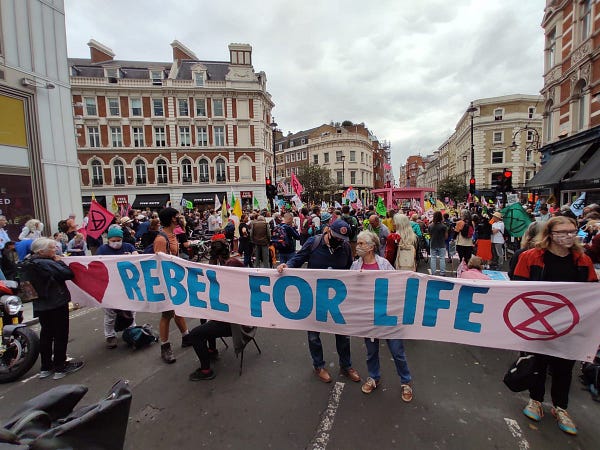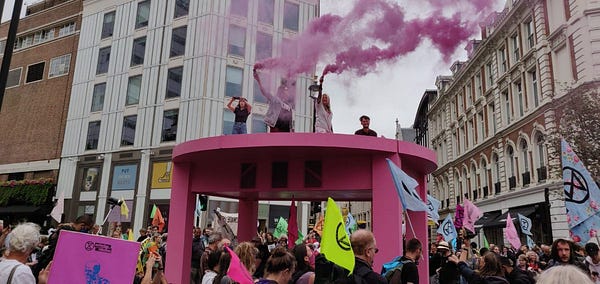Mark Borkowski: Nirvana Baby Lawsuit is a Fame Game Fable
There’s an epic irony to the ‘Nirvana Baby’ suing the band for exploitation for using a photo of him at 4 months old on the cover of Nevermind.
As many pointed out on Twitter, the fact that in the offending photo he is grasping for a dollar bill is eerily symbolic, but there’s another currency driving this odd and somewhat sad story: #fame.
The fact is that – whether through ComiCon, Never Mind the Buzzcocks, or recreating the Nevermind photo as an adult- Spencer Elden has been happy to use it as the basis for a steady career as a Z-List curiosity.
His association with a near-instant cornerstone of rock music history, and wider cultural monolith, earned him a little corner of the spotlight, one that he’s desperately clung to ever since.
Nothing in life is free, but there’s a distinctly Faustian tang to this type of fame. By choosing ‘Nirvana Baby’ as the path to his 15 minutes rather than trying to earn recognition through his own endeavors, Elden sacrificed any control or agency over the nature of this fame, and now that it has presumably passed the point of diminishing returns, he’s banging on the door of Mephistopheles demanding a do-over.
I’ll leave speculation on the outcome of the court case to legal professionals, but in fame terms, launching the lawsuit has, fittingly, given Elden one last little burst of notoriety; unearthed a still-glowing filament in the long-dying spotlight. I fear it will only last the length of the case before burning out completely and leaving the Nirvana Baby in the dark purgatory of anonymity.
Richard Burton's wisdom regarding toxic reality is sobering.
'Fame is a sweet poison you drink of first in eager gulps. Then you come to loathe it.
Was OnlyFans' decision to ban all sexually explicit content just one big publicity stunt?
Last week, "content subscription service" OnlyFans, which makes most of its revenue from adult content, made headlines by announcing that they would ban all sexually explicit content on the platform. Citing banking partners as the reason behind the move, the company, which had achieved a cult status in recent years, claimed that it "had no choice" and that the decision was made against the wishes of the company founders.

The backlash was swift – and intense. Content creators on the platform accused OnlyFans of "abandoning" the users who had driven the rise in the company's now 85-million-strong subscriber base. Sex worker associations argued that this would push thousands of people, who relied on OnlyFans as a source of income amidst the pandemic, towards exploitative pornography production companies.
After a media blitz spanning multiple television interviews, front-page news articles, and trends on Twitter lasting days, the company abruptly announced that it was rolling back their decision. On paper, this was because their banking partners had mysteriously removed objections.
The speed at which both the announcement and the reversal took place, however, prompts questions about whether this was all just one big publicity stunt to drive attention towards the company. After all, even the torrent of criticism from its users and sex worker support organisations was ultimately all part of a pretty compelling and very high profile case for OnlyFans being best-in-class for adult content. Or perhaps one aimed at arm-twisting negotiations with banks by showing them just how much public support this sprightly little start-up based in London had …
XR and the challenges of Rebellion





Extinction Rebellion were back this week after what feels like a hiatus, to begin a fortnight of protests in London. There have been 200 arrests so far but, in comparison to the group’s most infamous moments of recent time - namely, when protestors decided to disrupt a commuter train, at great inconvenience to the general public but no impact whatsoever on DEFRA policy-makers or the CEO of BP- their tactics this time round seem more considered.
They’ve shown a laser-focus on the City; a wise move that ensures public disgruntlement is minimised and the potential impact on those that truly need to take notice is amplified. The protests have received less news coverage than previous stunts have done, but if they are having an impact on the ground, does it matter?
Well, yes and no. The oxygen of public attention is critical for XR’s survival but, given past headlines, little news is sometimes good news. Well-received protests like the ones they’ve staged this week can sometimes fly under the radar, with the actions of wayward protesters grabbing media attention instead.
Take the affiliated ‘Animal Rebellion’ group, who made headlines this week for splashing Buckingham Palace with fake blood. Stunts like this have little positive traction: they feel crass to those sympathetic to the cause, and alienate the rest.
To truly move the dial of public perception, XR should keep their focus on clever, precise actions, and limit the activity of any members prone to bratty vandalism; easier said than done for a decentralised, non-hierarchical movement many of whose members are either anarchists, far left revolutionaries or new age travellers.
The tension created by the lack of organisation within this big tent, and a naturally hostile media leaves open the possibility of good work being drowned out by brash but ineffective wheezes.



